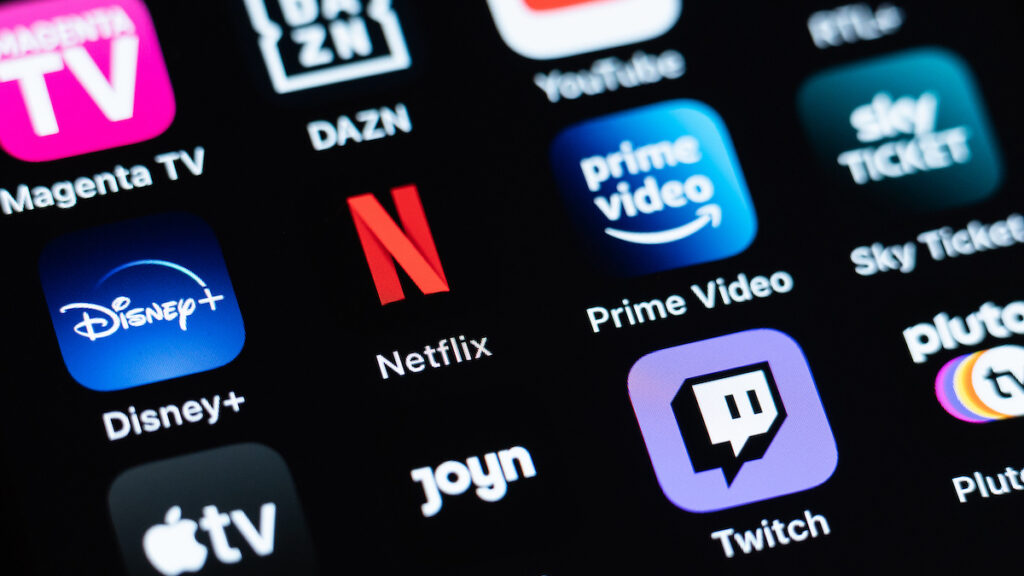UPDATES Jan 19 (See Original Jan 18 Item Below):
Twenty-four hours “later” RE Amazon Prime Video’s announced restructuring and shift away from Sub-Saharan Africa and MENA…
We’re still without direct information from Amazon regarding their *sudden* decision to drastically scale back on original content production in Africa and the Middle East, and any analysis remains mostly speculative. The reasons behind such corporate decisions can be complex and multifaceted.
That said, mulling over this some more may highlight a critical issue in their corporate strategy, particularly in the context of global expansion into diverse markets like “Africa.”
When Amazon Prime Video initially announced a significant commitment to developing African content and talent just a couple of years ago, it suggested a long-term vision for its presence in the region.
As I think we all recall, the move was met with a lot of optimism, as it promised to boost local creative industries and offer another streaming platform for African storytelling, as competition for both Netflix and Showmax.
The recent abrupt shift in strategy, however, raises questions about the depth of research and understanding that Amazon’s Prime Video Africa/MENA team had about African markets – regions with different cultural, economic, and technological landscapes that require thorough research, insightful understanding of local dynamics, and a long-term commitment.
Something that’s additionally perplexing is that Amazon hired local (African) executives likely to provide valuable insights and guidance in navigating the landscape. However, maybe an answer lies in how successful any provided insights were integrated into Amazon Prime Video’s broader strategy.
Again, for a comprehensive understanding, insights from the company’s executives or official statements would be essential.
Until then, applying Occam’s Razor—a principle suggesting that the simplest explanation is often the most likely—to Amazon’s decision:
– The most straightforward is that, due to any interplay of various factors, Amazon’s investment in original African and Middle Eastern talent and content did not perform as expected in terms of subscriber growth or return on investment.
Both main competitors, Netflix and Showmax, are actively trying to navigate similar unique challenges, leveraging a combination of local productions, strategic partnerships (Showmax + Comcast for example), and mobile-focused subscription models.
Neither has expressed any intent to scale back, at least not at this time.
The Original Item Follows
Rumors of a shutdown of Amazon Prime Video operations in Africa haven’t yet been fully confirmed. But what has been validated is a restructuring of its operations in the Europe, Middle East, and Africa (EMEA) regions specifically. The reorganization includes forming two European clusters: EU Established (EU5) and EU Emerging (EUX).
Meanwhile, investment in African and Middle East & North Africa (MENA) regions is being reduced, and roles in these areas are facing layoffs.
Amazon says that existing projects in Sub-Saharan Africa and MENA will continue, BUT no new original series or movies will be ordered in these regions. It appears Sub-Saharan Africa and MENA funding cuts will be redirected to the EU Emerging cluster (EUX) which will see increased investment.

According to Amazon, the decision is part of a strategy to prioritize resources in areas that contribute most to the bottom line. One can therefore assume that its Sub-Saharan Africa and MENA investments, despite being very recent, are not paying off, or Amazon has accessed that, even in the long-term, they likely will not be lucrative.
Among the high-profile executives potentially affected by the restructuring in Africa is Gideon Khobane, Director of Prime Video Africa, who was hired just seven months ago. However, Ned Mitchell, Head of Originals for Africa and the Middle East, and Ayanna Ionian, Director of Content Acquisition and Head of Worldwide Major Studio Licensing Strategy, who work out of Los Angeles are believed to be unaffected by these changes.
While Amazon’s language doesn’t explicitly state a complete shutdown, “restructuring” and “reduction in investments” could be euphemisms for “shutdown.”
It does imply a major shift away from original content production, and likely towards licensing, which is much cheaper.

That said, this likely affects certain significant deals Amazon Prime Video has made with African filmmakers and production companies.
– Nigerian filmmaker and producer Jáde Osiberu is in year two of a three-year deal with Prime Video to create and develop original scripted TV series and feature films exclusively for the streaming platform. She was the first African creative to sign such an exclusive development deal with Prime Video.
– Additionally, Amazon Prime Video signed an exclusive multi-year licensing agreement with Nigerian production company Inkblot Studios. This deal grants Prime Video worldwide VoD rights to Inkblot’s feature slate from 2022.
– There’s also a multi-year licensing agreement with Nigerian production company Anthill Studios. This agreement, announced on January 7, 2022, grants Amazon Prime Video exclusive global distribution rights to Anthill Studios’ slate of films after their theatrical runs.

Ultimately, until we get more information from Amazon, this can be seen as a response to evolving market dynamics and a re-evaluation of growth opportunities. It suggests a focus on regions Amazon has determined have higher growth potential, and apparently, Africa as a region isn’t one of them.
Again, this comes just a couple of years after Prime Video began focusing on African Originals and licensing.
Other major streamers like Netflix have not publicly expressed similar concerns regarding operations in Africa. However, that does not mean they are not being expressed internally. Although, it’s worth noting that Netflix has been clear about having a long-term outlook.
This could be an opportunity for local competition, specifically, Multichoice’s Showmax, to capitalize on, especially after its 2023 rebranding and partnership with Comcast. It might find this an opportune moment to strengthen its position in the African market, with the reduced presence of international players like Amazon Prime Video.

It’s worth noting that in corporate restructuring or cost reduction scenarios, the most recent investments or initiatives—especially those not yet fully established or are not integral to the core business—can be among the first to see cutbacks. That could be the case here.
Ultimately, in the context of the broader streaming landscape, Amazon Prime Video’s initial focus on African Originals and licensing initiatives reflected part of a larger trend among major streaming platforms to diversify and appeal to a global audience.
But, even in the USA, momentum for Diversity, equity, and inclusion (DEI) policies, which gained significant traction following the so-called “Racial Reckoning” that began in 2020 after the murder of George Floyd, is fading.
Some major studios have modified their DEI policies, laying off DEI executives and effectively shutting down DEI efforts.
There was also a 2024 “Inclusion Initiative” report by USC Annenberg that indicated that the DEI pledges made by major studios were largely performative.
So what now? More later…
Pingback: Amazon Withdraws, Showmax Advances: The Evolving African Streaming Landscape